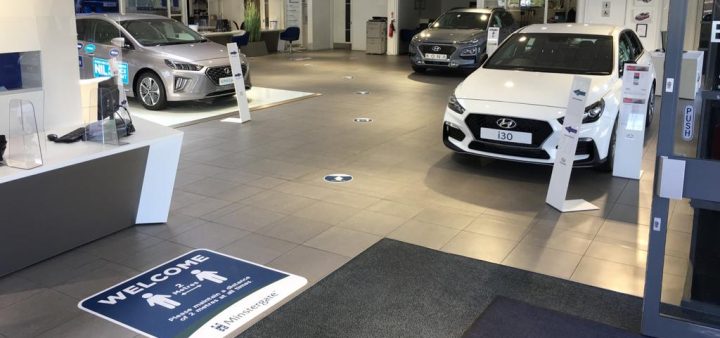Continuing confusion over Net Zero targets is slowing the recovery of motor sales.
Seán Kemple, Managing Director of Close Brothers Motor Finance, said, “March marks a year since the first UK national lockdown, and the industry has evolved remarkably during this time.
“New car sales are going ahead through click and collect, or click and deliver, services, and dealers continue to adopt new ways of working to get cars from forecourt to driveaway in what is commonly now a top-to-toe digital journey for buyers.
“Light commercial vehicle sales continue to perform well despite the circumstances, as the e-commerce boom puts more cars and motorbikes on the road. This is despite multiple challenges facing the industry, including a slowdown of production due to a pandemic-related supply squeeze, and a shortage of semi-conductors which are increasingly needed as cars get smarter.”
He went on,“Aside from the disruption caused by the pandemic, confusion over Net Zero targets is adding fuel to the fire. In November last year, the Government announced that the ban on petrol and diesel cars would be pushed forward from 2035 to 2030 to meet carbon pledges.
“But then this March, the Government made a snap decision to cut electric car grants from £3k to £2.5k. This is sending consumers and the motor industry mixed messages, and causes dealers already under extreme pressure to have to scramble to reflect the price changes in their sales material and rethink the stock on their forecourt.
“New alternative fuelled vehicle sales are rising, but we’re still not at the tipping point of AFVs on the road, nor is the infrastructure where it needs to be to support the transition. Consumers appetite is there – people want greener models and are increasingly environmentally conscious, so there needs to be clearer messaging and much more support from the Government to help turn the dial.”
Close Brothers Motor Finance’s upcoming Britain Under the Bonnet report shows which car types drivers are opting for:
- Hybrid vehicles overtakes petrol and diesel as the most popular car type for motorists, with one in four (26%) of UK drivers planning to purchase a hybrid car next
- Just one in five (22%) intend on purchasing a petrol engine vehicle, fuelled by manufacturers and Government’s push for electric – down from 37% in 2020
- Diesel continues to decline in popularity with just 8% stating they’ll choose a diesel car – down from 12% in 2020
- Price, how economical the vehicle is to run, followed by the impact on the environment are the main drivers for car choice
What influences motorists’ vehicle choice:
| Total | Hybrid | Petrol | PHEV | Battery | Diesel | |
| Affordability / price | 48% | 36% | 53% | 35% | 27% | 45% |
| How economical the vehicle is to run | 47% | 41% | 48% | 24% | 40% | 48% |
| The impact on the environment | 40% | 38% | 41% | 28% | 51% | 39% |
| It suits the type of driving I do best | 34% | 26% | 35% | 31% | 31% | 37% |
| It’s what I’m used to | 27% | 24% | 30% | 17% | 29% | 22% |
| The manufacturer | 21% | 29% | 21% | 22% | 13% | 17% |
| Public reputation | 14% | 25% | 13% | 13% | 22% | 11% |
| Top speed | 13% | 25% | 12% | 15% | 20% | 11% |


